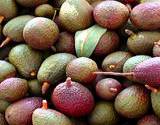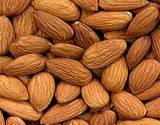|
Grandma's Tyrosine
|
 |  |  |
Tyrosine is a precursor of the neurotransmitters norepinephrine and dopamine, which regulate mood, among other things. This amino acid acts as a mood elevator; a lack of adequate amounts of tyrosine leads to deficiency of norepinephrine in the brain, which in turn can result in depression.
The fact that this amino acid are termed "nonessential" does not mean that it is not necessary, only that they need not be obtained through the diet because the body can manufacture them as needed.
This amino acid suppresses the appetite and helps to reduce body fat. It aids in production of melanine (the pigment responsible for skin and hair color) and in the functions of the adrenal, thyroid and pituitary glands. It is also involved in the metabolism of the amino acid phenylalanine.
Tyrosine attaches to iodine atoms to form active thyroid hormones. Not surprisingly, low plasma levels to tyrosine have been associated with hypothyroidism.
Symptoms of tyrosine deficiency can also include low blood pressure, low body temperature, (such as cold hands and feet), and restless leg syndrome.
Supplemental L-tyrosine has been used for stress reduction, and research suggests it may be helpful against chronic fatigue and narcolepsy. It has been used to help individual suffering from anxiety, depression, allergies, and headaches, as well as persons undergoing withdrawal from drugs. It may also help people with Parkinson's disease.
Natural sources of Tyrosine include:
- almonds
- avocado
- bananas
- dairy products
- lima beans
- pumpkin seeds
- sesame seeds
This amino acid can also be produced from phenylalanine in the body.
Supplements of L-tyrosine should be taken at bedtime or with a high-carbohydrate meal so that it does not have to compete for absorption with other amino acids.
Caution: Persons taking monoamine oxidas (MAO) inhibitors, commonly prescribed for depression, must strictly limit their intake of foods containing tyrosine and should not take any supplements containing L-tryosine, as it may lead to a sudden and dangerous rise in blood pressure. Anyone who takes prescription medication for depression should discuss necessary dietary restrictions with his or her physician.
Return from Tyrosine to Amino Acid Guide
Return to Grandma's Herbal Remedies Guide





